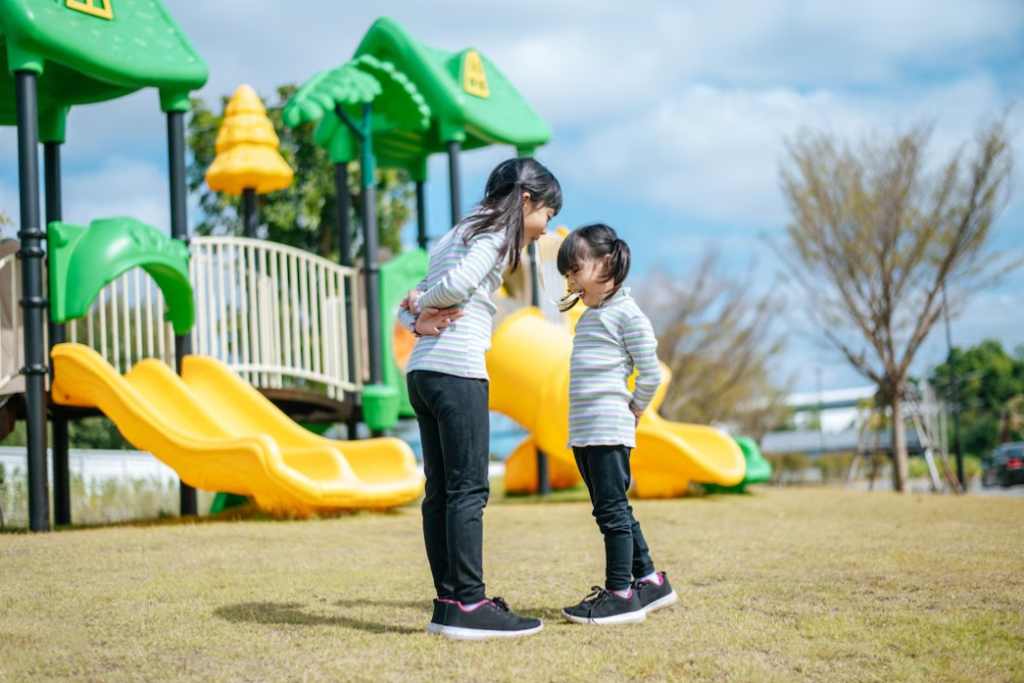As parents, we all want our children to be happy, healthy, and successful. To achieve this, we often invest in their education, extracurricular activities, and various enrichment programs. But we must not forget the importance of playtime, especially outdoor play, for our young children.
According to the American Academy of Pediatrics, unstructured outdoor play is essential for children’s physical, emotional, and cognitive development. Toddlers who spend more time outdoors tend to have better motor skills, coordination, and balance, as well as stronger immune systems and overall health. Moreover, playing outside helps toddlers learn how to interact with their environment, explore their creativity, and build resilience and self-confidence.
Sampoerna Academy, a leading international school in Indonesia, recognizes the crucial role of outdoor play in early childhood education. The school’s curriculum and facilities are designed to promote holistic development and provide ample opportunities for children to engage in outdoor activities.

The Benefits of Outdoor Play for Toddlers
Here are some of the benefits of outdoor play for toddlers that Sampoerna Academy incorporates into their program:
1. Physical Fitness and Health
Toddlers who spend more time playing outside tend to be more physically active and less prone to obesity and related health issues. Outdoor play helps children develop their gross motor skills, such as running, jumping, climbing, and throwing, as well as fine motor skills, such as picking up objects, drawing, and writing.
At Sampoerna Academy, students have access to a wide range of outdoor facilities, such as playgrounds, sports fields, and swimming pools. The school’s physical education program also focuses on developing students’ physical fitness, agility, and coordination through various sports and activities.
2. Creativity and Imagination
Outdoor play allows toddlers to use their imagination, creativity, and curiosity to explore and discover their surroundings. They can engage in imaginative play, such as pretending to be superheroes, fairies, or explorers, and use natural materials, such as sticks, stones, and leaves, to create their own games and activities.
Sampoerna Academy’s outdoor environment provides many opportunities for children to engage in creative play. The school has a gardening area, an art studio, and a music studio where children can experiment with different materials and express their creativity in a safe and inspiring space.
3. Social Skills and Emotional Intelligence
Playing outside with other children helps toddlers develop their social skills, such as sharing, taking turns, and communicating effectively. They learn how to interact with others, make friends, and resolve conflicts in a positive way. Outdoor play also promotes emotional intelligence, as children learn how to regulate their emotions, deal with stress, and build resilience.
Sampoerna Academy fosters a supportive and inclusive community where children can learn and grow together. The school’s outdoor spaces are designed to encourage collaboration, teamwork, and positive relationships among students. The school also offers various programs and activities that promote social and emotional learning, such as mindfulness, empathy, and leadership development.
4. Environmental Awareness and Sustainability
Outdoor play provides toddlers with opportunities to connect with nature, learn about the environment, and develop a sense of responsibility and stewardship. They can observe and appreciate the natural world, learn about the importance of preserving biodiversity, and engage in eco-friendly practices, such as recycling and composting.
Sampoerna Academy promotes environmental awareness and sustainability through various initiatives and programs. The school offers environmental education programs that focus on eco-literacy, conservation, and social responsibility.
5. Cognitive Development and Learning
Outdoor play provides toddlers with many opportunities to learn and develop their cognitive skills, such as problem-solving, critical thinking, and decision-making. They can explore cause-and-effect relationships, experiment with different materials and objects, and learn about scientific concepts, such as gravity, friction, and sound.
Sampoerna Academy’s outdoor learning environment is designed to stimulate children’s curiosity and foster their love for learning. The school has an outdoor classroom, a science garden, and a maker space where children can engage in hands-on and experiential learning. The school also incorporates outdoor activities and excursions into its academic program, such as nature walks, field trips, and outdoor experiments.

Join Us
Outdoor play is essential for toddlers’ holistic development, and Sampoerna Academy is committed to providing a learning environment that emphasizes the importance of playtime. The school’s outdoor facilities, programs, and initiatives are designed to promote physical fitness, creativity, social skills, environmental awareness, and cognitive development in young children.
As parents, we can also support our children’s outdoor play by providing them with safe and stimulating environments, encouraging them to explore and discover their surroundings, and limiting screen time and sedentary activities. By promoting outdoor play, parents and educators can help children develop the skills, knowledge, and attitudes they need to succeed in life and contribute to society.
If you are looking for a school that prioritizes the holistic development of your child, Sampoerna Academy is a perfect choice. With its innovative curriculum, state-of-the-art facilities, and commitment to outdoor play, your child can thrive and reach their full potential.
Join Sampoerna Academy today and give your toddler the gift of a joyful and enriching learning experience. Let’s build a strong foundation for their bright future!
To learn more about the admission process, curriculum, and programs, visit the website at www.sampoernaacademy.sch.id. Contact us today!
Reference:
American Academy of Pediatrics. (2018). The Importance of Play in Promoting Healthy Child Development and Maintaining Strong Parent-Child Bonds. Pediatrics, 142(3), e20182058. https://doi.org/10.1542/peds.2018-2058
Related Articles:





